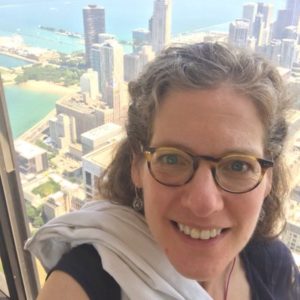Commentary on Parshat Re’eh (Deuteronomy 11:26 – 16:17)
I have been studying Parshat Re’eh with my daughter for months, as she prepares for her bat mitzvah. I hear her practicing in the next room, repeating over and over again: efes ki lo yihyeh bekha evyon, “There shall be no needy among you” (Deut. 15:4). And, ki yihyeh vekha evyon, “There shall be needy among you” (Deut. 15:7). And, ki lo yechdal evyon mikerev ha’aretz, “There shall never cease to be needy ones in your land” (Dt. 15:11). What does she make of this contradiction?
It is, she has pointed out, easy to relate these words to our lives. We live in one of the wealthiest nations in the world by any measure, at a time when worldwide wealth has reached unprecedented levels. We read Gunther Plaut’s commentary on the verses: “There shouldn’t really be any needy among you”—yet there are. Even with world population exploding, there is plenty to provide for everyone. What’s more, we read, God has given us all the instruction we need to eradicate poverty in our midst, “if only [we] would carefully listen to the voice of Adonai [our] God, to guard and keep all of [God’s] commandments” (Deut. 15:5).
Sign up to receive Torah from T’ruah in your inbox each week.
Why then, do evyon, people in the greatest degree of want, still walk among us? Why is it so hard for us to follow God’s instructions? The Torah itself seems to despair of our faithlessness: “There shall never cease to be needy ones.” And Hillel’s prozbul, the legal loophole that allowed Jews to collect debts notwithstanding the shmitta (sabbatical) year, which mandates remission of debt, might be read as reinforcing this sense of helplessness in the face of human nature.
As early as the first century B.C.E., when Rabbi Hillel issued his controversial prozbul, it was clear that people were not willing to observe the shmitta law when it came to debt remission, and that the law itself was doing more harm than good. Rather than risk issuing a loan that could not be collected before the sabbatical year, lenders had ceased lending to the poor at all, a behavior the mere thought of which the Torah calls bliya’al, “wicked,” or “base” (Deut. 15:9): worthy of scoundrels. Better that people should collect debts marked for remission, Hillel reasoned, than that they refuse to lend to the needy.
And so we are left with the only conclusion we can draw: We ourselves are scoundrels, for do we not also have these thoughts? Do we not seek to protect what is ours, even (maybe especially) when confronted with one whose need and suffering outstrips our own? What can we do with such scoundrels as ourselves, let alone the scoundrel who might want to borrow our money, looking for a loan he may never repay? Where is our hope in this message?
Being the mother of a bat mitzvah has been humbling. An important chapter of my work as a mother is done. She is not going to start driving, paying rent, or otherwise adulting for another minute or so, but the basic values we intended for her have already taken root—or not—and now she’s making her way into the world, testing them out, drawing her own conclusions, looking to her peers at least as much as to her parents.
Find more commentaries on Parshat Re’eh
The time has come when I can better serve her by stepping back, by allowing her to succeed or fail on the strength of her own choices, than by imposing my choices on her.
Humility begets compassion. Compassion for all the other parents who have gone through this before me—including my own! Compassion for the evyon, whose need for—no, whose human right to—the most basic sustenance outstrips any claim I may place on property and security. Compassion for myself, bliya’al though I am, and for all the other scoundrels whom I so willingly indict ahead of myself. Compassion for my daughter, whose choices will not be mine, whose road is already more difficult than mine, whom I will love and support and celebrate this Shabbat, beyond measure.
 Re’eh—look. See things from a new perspective. When life humbles us, compassion shows us the way forward.
Re’eh—look. See things from a new perspective. When life humbles us, compassion shows us the way forward.
Rabbi Debra Kassoff has served Hebrew Union Congregation in Greenville, Mississippi, since 2010. Following ordination from HUC-JIR, she worked with Jackson, Mississippi based Institute for Southern Jewish Life, as well as congregations in Massachusetts and Colorado. Raised in Columbia, Maryland, Rabbi Kassoff lives in Jackson with her husband and two daughters in a house they share with another family, a cat, and a rotating cast of visitors, family, and friends.

